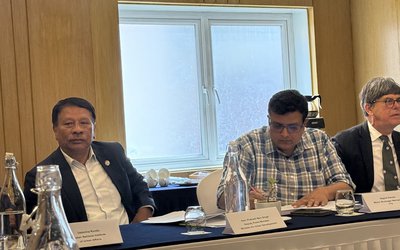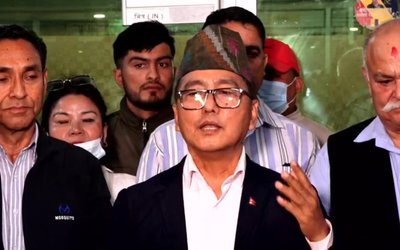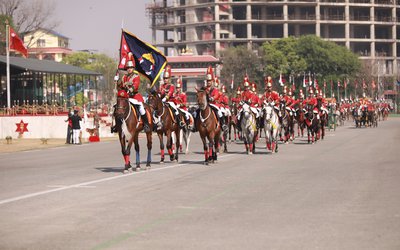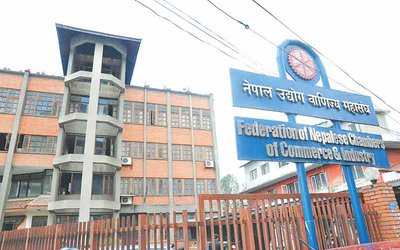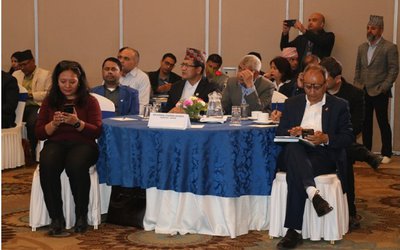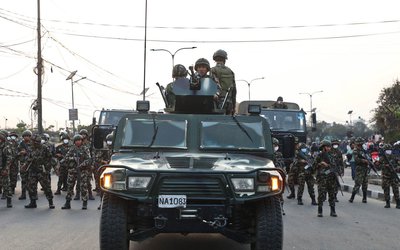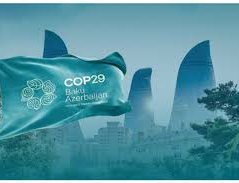
The 29th session of the Conference of the Parties (CoP 29) to the UNFramework Convention on Climate Change, 19th session of the CoP serving as the Meeting of the Parties to the Kyoto Protocol (CMP 19), and 6th session of the CoP serving as the meeting of the Parties to the Paris Agreement (CMA 6) will be held at Baku, Azerbaijan from 11 to 22 November 2024 along with the 61st sessions of the Subsidiary Body for Implementation (SBI) and Subsidiary Body for Scientific and Technological Advice (SBSTA). Pre-sessions of the negotiating blocs such as theLeast Developed Countries (LDCs), Small Island Developing States (SIDS), regional groups, and G77 and China are planned for 4-10 November 2024 in the Conference venue (Baku Stadium). As in previous CoPs, Parties to the Convention, Kyoto Protocol (KP) and the Paris Agreement (PA) will negotiate on agreed agenda items and make substantial decisions to achieve the ultimate objective of the Convention – stabilise atmospheric concentration of greenhouse gases (GHGs), allow ecosystems to adapt naturally to climate change, ensure food production, and enable economic development in a sustainable manner.
At Baku, Parties and non-parties will raise voices, concerns and ideas, and share lessons, experiences and learning of climate actions through mandated-events of the governing and subsidiary bodies, side-events including of the constituted bodies, consultation meetings and dialogues.
As climate change has been a political agenda, political guidance from the World Leaders’ Climate Action Summit and High-Level Segment on 12-13 November (Part 1) and high-level Segment on 20 November (Part II) will largely determine the nature of decisions in this CoP.Three High-Level Ministerial Dialogues on climate finance, and adaptation finance, and a Roundtable on pre-2030 ambition will largely shape the outcome of CoP29 and CMA 6.
Presidency’s Initiatives
H.E. Mukhtar Babayev, CoP 29 President-Designate and Minister for Ecology and Natural Resources of the Government of Azerbaijan has informed Parties on Presidency’s initiatives and pledges such as on: (i) Climate finance action fund (CFAF) – a public-private partnership fund which will be capitalized from voluntary contributions from fossil fuel producing countries and companies; (ii) Thematic days and Action Agenda initiatives; (iii) Baku Initiative for climate finance, investment and trade (BICFIT); (iv) Green energy zones and corridors; (v) Global energy storage and grids; (vi) Hydrogen action; (vii) COPtruce appeal (for collaboration, climate action, and peace); (viii) Green digital action; (ix) Baku initiative on human development for climate resilience; (x) Baku Harmoniya climate initiative for farmers; (xi) Reducing methane from organic waste; (xii) Multisectoral actions pathways (MAP) for resilient and healthy cities; (xiii) Enhanced climate action in tourism; (xiv) Water for climate action by launching Baku dialogue; and (xv) Baku global climate transparency platform. The state of these initiatives will be better understood during and after CoP 29 to advance climate actions ‘in solidarity for a green world’.
Provisional agenda include continuation of previous agenda items for the implementation of the Convention, Protocol and Agreement. As usual, several decisions may be taken to expedite actions, inter alia, on GHGs emission reduction (mitigation), adaptation, finance, capacity-building, and technology.The provisional agenda includes two new items: (i) facilitating dialogues on mountains and climate change as per request from Kyrgyzstan; and (ii) establishment of a regional centre for climate change technologies in Central Asia as per request from Turkmenistan. Provisional agenda is expected to be adopted by the plenary at its first session to advance negotiations and make decisions.
Finance was akey factor for major decisions in previous CoPs. A high-level ministerial dialogue will be convened in this CoP to set a new collective quantified goal (NCQG) on climate finance from a floor of USD 100 billion per year. Climate communities also consider this CoP a ‘finance CoP’. At present, pledge-based five funds namely Special Climate Change Fund, LDC Fund, Adaptation Fund, Green Climate Fund, and Loss and Damage Fund exit. These funds provide nominal financial resources to implement climate actions in the climate vulnerable poor countries.
Nepal’s Participation and Representation
Nepal participated all meetings and CoPs, right from the adoption of the Convention at New York in 1992, Kyoto Protocol during CoP 3 in 1997, and the Paris Agreement during CoP 21in 2015. Nepal made statements in the high-level segment of almost all CoPs. The President of Nepal made a statement at CoP 24 at Katowice (Poland) in 2018, and three Prime Ministers made statements at Copenhagen in 2009, Glasgow in 2021 and Dubai in 2023. It is most likely that the President of Nepal will participate the Leaders Summit & High-Level Segment at Baku.
In the UNFCCC process, Nepal participated in the constituted bodies from 2004 onwards. It represented the Asian LDCs in the LDC Expert Group (LEG) for 2004-‘05, from 2008 to 2024 and will continue till 2031. It has offered its services as the rapporteur for SBSTA from 2008 to June 2011 representing the Asia and Pacific, Adaptation Fund Board for 2015-‘16 and 2024 representing the LDCs, Warsaw International Mechanism (WIM) for Loss and Damage for 2016-‘17 representing the Asia and Pacific, Facilitative Working Group (FWG) of the Local Communities and Indigenous Peoples Platform (LCIPP) for 2024 representing the Asia and Pacific, and LDCs from 2019 onwards, and Supervisory Body established under Article 6.4 of the Paris Agreementrepresenting the LDC group from 2022. For documentation purpose, Meena Khanal and Purushottam Ghimire served as the rapporteur; Purushottam Kunwar, Batu Uprety, Naresh Sharma (one meeting), Ram P. Lamsal, and Buddi S. Poudel were in the LEG; Naresh Sharma in the Adaptation Fund Board; KC Poudel in WIM; Maheshwor Dhakal, Radha Wagley and Pasang Dolma Sherpa in LCIPP; and Manjeet Dhakal in the Supervisory Body.Dr. Buddi Sagar Poudel is expected to continue in the LEG till 2031.
Between 2013 and 2016, Nepal offered its services as the chairs of the LDC Coordination Group (2013-‘14), LEG (2014-‘15), and Adaptation Fund Board (2016). Prakash Mathema coordinated the LDC Group as the chair for nearly 22 months, and Ram P. Lamsal for the meeting in Lima, Peru. Batu Uprety served as the LEG chair for 2014-2015 and Naresh Sharma for February 2018 meeting. In 2024, Adaptation Fund Board has nominated Mr. Naresh Sharma who represents the LDC Group in the Board as the chair of its Accreditation Panel for 2025. In 2018, Nepal’s climate change focal point changed the name of the LEG member, loose chairmanship, and attended meetingstill 2020 as a member.
The administration of the then Ministry of Environment timely nominated officials to attend each session and meeting of the UNFCCC and constituted bodies. In 2018, the government merged the environment and climate change with forests by naming the Ministry of Forests and Environment. Since 2018, ‘trusted members’ representing negotiating blocs may have been irregular in meetings. Nepal is currently chairing the Global Coordination Bureau of the LDCs. On climate change, Malawi is chairing the LDC Group. Some conferences require participation at political level. For example, Malawi organised ministerial conference of LDCs at its capital on 28 August 2024 and agreed the Lilongwe declaration along with key messages of the LDC Group on climate change which will likely guide the negotiations at CoP 29, CMP 19 and CMA 6. However, Nepal could not participate it at political level, and it is noted.
National Initiatives and Priorities
As a reminder, Nepal’s engagement onUNFCCC-related actions can be broadly grouped into three phases: (i) pre-2006 (1992-2006) period; (ii) 2007-2017 period; and (iii) 2018-2024 period. During thefirst phase, Nepal participated right from adoption of the UNFCCC toall CoPs and meetings, prepared initial national communication and registered two CDM (Clean Development Mechanism) projects. The then Ministry of Population and Environment was dissolved and the newly established Ministry of Environment, Science and Technology (later the Ministry of Environment) mainstreamed climate actions during 2007-2017 period through: (i) institutional strengthening (dedicated Climate Change Section in 2008, and Climate Change Division and Knowledge Management Centre in 2010, (ii) formulation and implementation of a climate change policy, programmes such as National Adaptation Programme of Action (NAPA), National Framework on Local Adaptation Plan for Action (LAPA), budget code, and start of the formulation of National Adaptation Plan (NAP) etc; (iii) establishment of functional coordination mechanisms such as Climate Change Network (2007), Climate Change Council (CCC, 2009) and Multi-Stakeholder Climate Change Initiatives Coordination Committee (MCCICC, 2010); (iv) enhancing political commitment by organising Cabinet Meeting at Kalapatthar (2009), national, regional and international conferences and meetings; (v) knowledge generation and management; (vi) accessing climate funds to largely implement adaptation actions; (vii) development and mobilisation of a multi-stakeholder Core Negotiating Team (CNT) along with the preparation of agenda and issue-based negotiating materials; (viii) contributions in constituted bodies as members and chairs and (ix) leading the LDC Coordination Group on UNFCCC negotiating processes.
During 2018-2024 period, broadly speaking, Nepal has: (i) heightened political commitment also due to climate-induced disasters and visit of the UN Secretary-General; (ii) revisited institutional structure;(iii) included climate change provisions in the Environment Protection Act (2019) and Rules (2020) to respond Supreme Court verdict, re-issued climate change policy and LAPA framework; (iv) revisited former coordination mechanisms, and constituted National Council on Environment Conservation and Climate Change Management, and Inter-ministerial Climate Change Coordination Committee (CCCC) and Provincial CCCCs; (v) prepared and published Nationally Determined Contribution (NDC) and its Action Plan, NAP, long-term strategy and other documents such as sector-specific vulnerability and risk assessments; (vi) discontinued mobilisation of CNT with substantial increase in number of delegates from 2021, but continued preparation of issue-based negotiating materials; and (vii) facilitated in accessing climate finance and implement climate change adaptation and mitigation actions, faced difficulties in mobilising accessed resources and sent back partially the GCF funding for NAP. Nepal was the first country to access GCF resources for NAP preparation. During approval, it was attempted to lower down the total budget of USD 2.95 million. Nepal resisted in 2016 to lower down estimated budget. Unfortunately, she could not mobilise the accessed resources and returned its substantial portion.
Country preparation and engagement to access climate finance is comparatively very slow and updates in accessing and mobilising fundsisdiscouraging. Nepal has introduced loan for climate change activities. Some may recall ‘no loan to climate change’ movement in 2010 while the government was accessing over USD 90 million for PPCR (Pilot Programme for Climate Resilience). In fact, it was not a ‘loan’ project, but small amount of service charge was introduced by the Bank. Fortunately, country is focussing towards ‘climate-resilient’ development in the recent years.
The climate change focal ministry – Ministry of Forests and Environment (MoFE) – is organising a one-day national conference on climate change on 26 October 2024 to discuss on loss and damage, mountains and climate finance for Nepal’s meaningful participation at CoP 29. The conference outputs, Karnali declaration and recent training to Nepalese delegates (of CoP 29), including other initiatives for CoP 29 are expected to enhance country capacity for Baku climate negotiations.
At Baku, Nepal may wish to determine national priorities with clear concept for required funding from existing climate funds and development partners, revitalize the 2012 ‘core group’ concept, best utilize Nepal’s strength in accessing funding, and continue to develop knowledge-based human resources. A ‘dedicated team’ may be engaged to: (i) discuss with funding agencies and development partnersto secure large-scale funding; (ii) participate in side-events to share lessons, experiences and sharing of ‘home-grown’initiatives; (iii) attend and contribute in all meetings of agenda items related to adaptation, finance, carbon trading and capacity-building etc taking into account the climate change impacts in the mountains; and (iv) explore possibilities for positions in constituted bodies and once represented in such bodies, focus to secure leadership role.Opportunity exists and country-capacity needs to expand for accessing and mobilizing funds.
Let us hope that Baku Climate Conference will make substantial decisions, inter alia, on: (i) NCQG on finance to meet the urgent needs of climate vulnerable poor communities; (ii) submission of the updated NDCs with ambitious and achievable national commitments by February 2025; (iii) accelerating global adaptation actions through NAPs; and (iv) concrete decisions on carbon trading.

Batu Uprety
Former Joint-Secretary and Chief of Climate Change Management Division, Ministry of Environment (then), and former Team Leader, National Adaptation Plan (NAP) formulation process. E-mail: upretybk@gmail.com
- Sagarmatha Sambad: Likely Bearing the Fruits
- Mar 27, 2025
- Decadal Experience In Preparing The NDC
- Mar 03, 2025
- Over Five Decades Of Concern On Air Pollution
- Jan 16, 2025
- Damaging The Functional EIA Track
- Dec 22, 2024
- Baku CoP29 Outcomes And Nepal's Initiatives
- Nov 26, 2024



